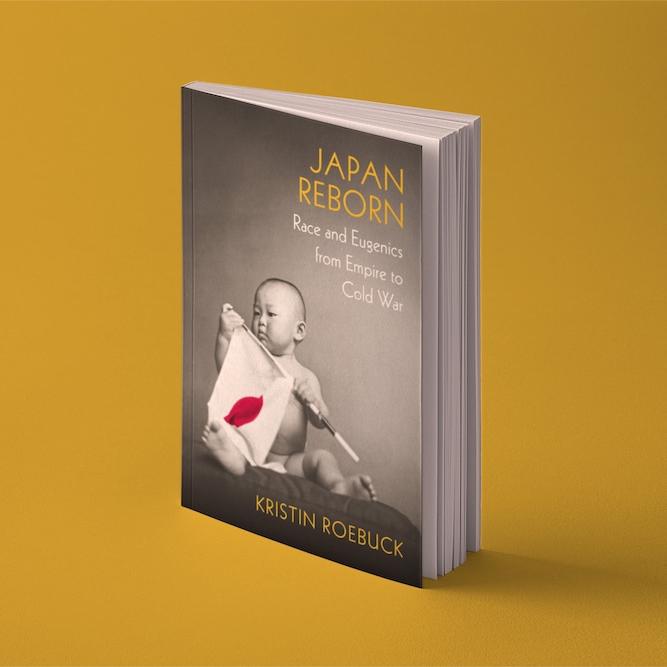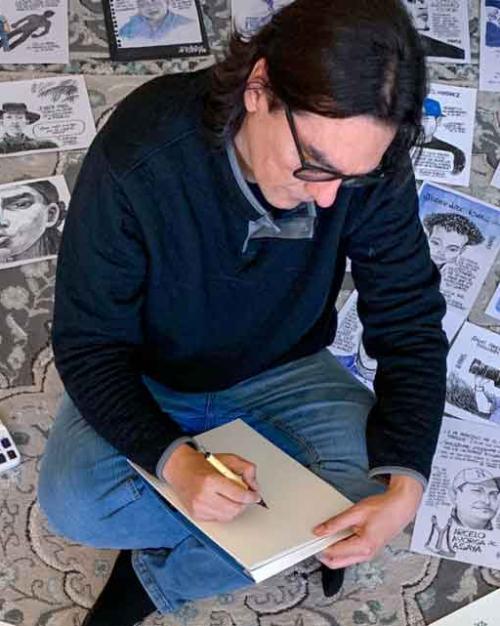Christmas in Nicaragua is supposed to be a time of feasting and family celebration. But for Pedro X. Molina, Christmas 2018 was a crossroads.
“I realized that if I stayed in Nicaragua, two things could happen,” said Molina, a well-known political cartoonist who regularly skewered the government of President Daniel Ortega in his cartoons. “One is that I would have to censor myself and stop talking about what was happening in my country. The second is that they would put me in jail. To guarantee that I would be able to continue to do my work, I made the decision to leave.”
For years, Molina received death threats by voicemail and on social media. Yet working from home in the mountain town of Estelí, Nicaragua, he was able to lay low and keep producing his cartoons – six a week, plus a comic strip on Sundays.
But in mid-December, when government forces raided and then occupied the offices of his main outlet, the daily newspaper Confidencial, he knew he had to flee. For months the government had been coming down hard on its critics, killing more than 300 people and imprisoning hundreds more. Independent journalists were among the regime’s favorite targets.
On Christmas Day, Molina arrived in Ithaca with his wife and two children, thanks to Ithaca City of Asylum (ICOA), an all-volunteer project of the Center for Transformative Action, a nonprofit organization affiliated with Cornell.
ICOA helped him find housing, secure a visa, and connect with Ithaca College, where he spent two years as a visiting scholar.
Molina transitioned to Cornell this fall with the help of an Artist Protection Fund fellowship from the Institute of International Education (IIE). IIE-APF places threatened artists at welcoming host institutions in safe countries, where they can continue their work and plan for the future with fellowship funding, mentorship and a network of artistic and social support.
Molina is now an APF fellow in residence and visiting critic at Cornell’s Latin American and Caribbean Studies Program (LACS), part of the Mario Einaudi Center for International Studies. He will moderate a hybrid panel discussion with fellow cartoonists about political resistance through the craft of cartooning Oct. 28 at 5 p.m.
“This is such a great opportunity for our program,” said Ernesto Bassi, LACS director and associate professor of history in the College of Arts and Sciences, of Molina. “Pedro is not just a very talented political cartoonist, but also an amazingly sharp social critic. You can see why his cartoons get to the authorities in Nicaragua.”
His work was recognized this month with the 2021 Gabo Award for Excellence, one of the most prestigious journalism prizes in Latin America. Molina is the first cartoonist to win the award, which is given by the foundation created by the late Nobel laureate Gabriel García Márquez.
The judges praised Molina for using humor “to challenge despotic rulers and even tyrannies,” and said the award was meant to “publicly laud – before all citizens of the Americas – the social value of journalism that resists abuses of political power on our continent.”
When Molina and his family arrived in Ithaca, with just carry-on luggage to avoid suspicion, they had heard of the city only a few days before. It was snowing and they were all exhausted. But before Molina collapsed in bed, he dug out his iPad, drew a cartoon, and sent it to Nicaragua.
“Among all the other things we were feeling at that moment, it was great to know that what we were doing had a purpose,” he recalled.
That was nearly three years ago. Since then, Molina has sent home a cartoon every day.
At LACS, Molina will give workshops and lectures and interact with faculty and students. In the spring, he will teach a class in cartooning. He also continues to produce cartoons for Confidencial and other publications.
Molina’s placement at Cornell is part of a larger commitment by Global Cornell and the Einaudi Center to partner with international scholar rescue organizations to support scholars, writers, artists, journalists and human-rights defenders whose work puts them at risk in their home countries.
“One of the Einaudi Center’s core research priority areas is democratic threats and resilience,” said Einaudi director Rachel Beatty Riedl. “Integrating scholars into our community who are persecuted because of what they study – or who they are – is an act of democratic resilience that fosters intellectual pluralism at home and abroad.”
Weeks after the Taliban takeover of Afghanistan in August, Global Cornell announced plans to host three mid-career Afghan scholars with support from the IIE’s Scholar Rescue Fund. Global Cornell is also working with Cornell’s Herbert F. Johnson Museum of Art to host a female Afghan artist who is currently in Iran.
“Great resilience can emerge from grave threat, and these scholars are charting the course,” Riedl said. “We are honored to host them and integrate them into our research teams.”
The Southeast Asian Program is currently sponsoring a photographer and an opposition politician from Myanmar, both of whom fled after the military coup in February 2021. In January, the Institute for European Studies will welcome a well-known Russian dissident writer and media personality supported by a fellowship from the Open Society University Network.
In addition, Global Cornell is leading an effort to bring several Afghan women undergraduates to Ithaca to work as short-term research interns across the university. Eight students are expected to arrive in early November.
Molina says he would love to return to Nicaragua, but that is not an option at this point. He says he has many plans for his time at Cornell, including “to find a more stable position where I can support my family.”
In the meantime, he refuses to let the distance silence him. On top of his teaching, speaking and freelance work, he’ll continue to send home daily cartoons.
Jonathan Miller is a freelance writer based in Ithaca, New York, and a member of Ithaca City Of Asylum’s board of directors.




